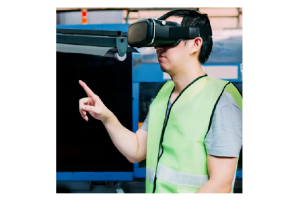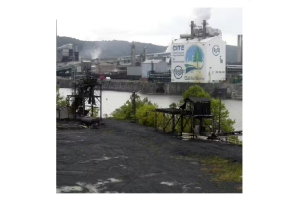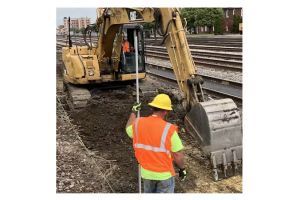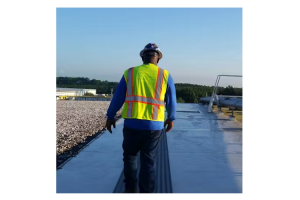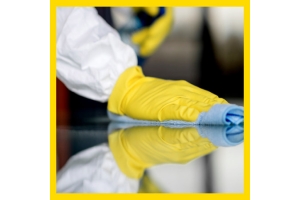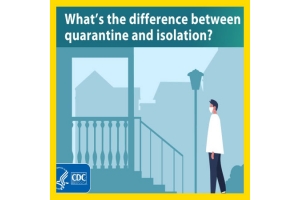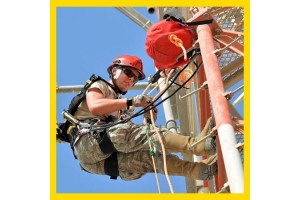Currency
July 12, 2018
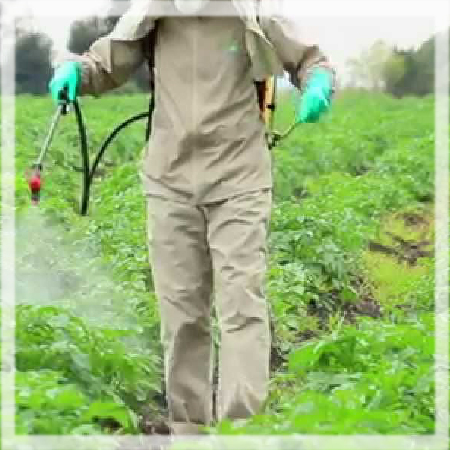
Kelly Friel is a Digital Product Manager with tool and personal protective equipment supplier Zoro. In this article, she shares the essential PPE that workers in the agricultural sectors need to stay safe during farm work.
For all the joys of farming, it remains an extremely hazardous industry. It's a sobering fact that the agricultural sector represents only 1.8% of the UK workforce, but accounts for approximately 19% of reported fatalities every year — and the number of workers who lose their livelihoods to injuries and illnesses caused by farm work is higher still.
Additionally, accidents in the industry can take a big toll on businesses, causing high insurance premiums, damage to machinery, and reduced productivity and profits.
Farming is always going to involve an element of risk. The good news is that there are precautions you can take to help minimise the risk of an accident or injury, and this is where personal protective equipment comes in.
Ensuring that you, your family, and your staff have the right safety equipment for the job will mean that everyone has an extra layer of protection if something goes wrong.
In this article, I'll share my advice on how to choose the right PPE for the job and outline the essential gear that all farmworkers should use during everyday tasks. Read on to learn everything you need to know.
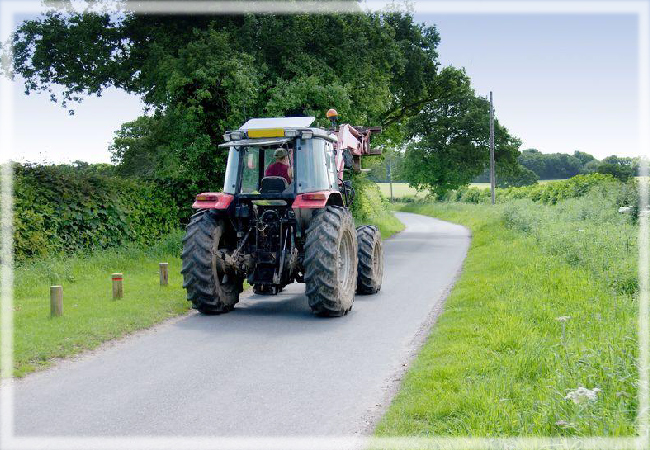
In the course of everyday work, farmers and their employees are exposed to a number of different hazards. So, all farm staff should have a few basic pieces of PPE on hand at all times, including:
Reinforced boots or wellies: These will provide an extra layer of protection against falling equipment or trampling by livestock. They should also provide adequate grip to help prevent slips, trips and falls, especially on wet surfaces and mud.
Cut resistant gloves: While not a failsafe form of protection against damage to the hands, these gloves do offer an extra line of defence against cutting hazardous and sharp equipment.
Hardhats and helmets: These will offer protection from falling objects and prevent head injuries caused by slips, trips, and falls from a height.
Safety harnesses: During prolonged work at height (for instance, restocking a loft, or repairing tall machinery) it's sensible to wear a tethered safety harness to prevent falls.
Hearing protection: Farms can be noisy places and, over time, this can cause hearing loss. Machinery, vehicles, power tools, and livestock can all cause hearing damage, so it's wise to have a variety of ear plugs and noise reducing headphones on hand to suit different environments and preferences. As a rule of thumb, if you need to raise your voice to speak to someone who is standing only a metre away, then the level of noise is likely to be hazardous and protection should be worn.
All of this PPE is likely to be required on a daily basis, so it should be kept somewhere easy to access. Frequent usage can also lead to wear and wear, so you should monitor equipment regularly to check it’s still fit for purpose.
Pesticides, fertilisers, and disinfecting chemicals are all everyday items in a farm environment, but they can still be dangerous products when used without the right PPE. To protect workers' skin, eyes and lungs when spraying, applying, and handling these chemicals, employers need to provide:
Safety glasses or goggles: Goggles will be needed if there is chance that drifting clouds of vapour will reach the eyes. When working with ammonia, you will need unvented, close-fitting goggles to prevent both vapours and liquid from reaching the eyes.
Chemically resistant gloves: These should extend up the forearms to ensure total protection. Certain types of rubber or plastic will only be suitable for certain chemicals, so check the manufacturers' instructions.
Chemically resistant boots: A pair of rubber, chemically resistant boots will protect the feet from spillages. These are especially important if the wearer will be walking across treated surfaces, e.g. a freshly-sprayed field.
Chemically resistant overalls: These should leave no areas of the body exposed.
Respirator mask: The correct breathing mask will stop gases, vapours and dusts from damaging the lungs and throat. A cartridge respirator will be needed for fine vapours, mists and gases although, during work with highly toxic chemicals, an air-fed mask might be more appropriate. Dust can also cause serious lung irritation, so respiratory equipment and dust masks are essential during jobs that expose the worker to high levels of particulate matter, like harvesting, threshing, and processing crops.
Remember that vapours, dusts and fumes may drift considerable distances, so all staff working near potentially dangerous substances will need some form of protection.
Lastly, it's essential that everyone on your farm understands their responsibilities and what they need to do to keep themselves and others safe.
It’s no good supplying your staff with PPE unless they're well-versed in how to use, store, and monitor it correctly, so you should be sure to give them the right training. The Health and Safety Executive is an invaluable resource for farm safety training, so take a look at their help and advice section to learn more about what you can do.
Workers should know how to check their PPE for faults and damage, and they should understand exactly what do if they discover a problem with their equipment. They should also know how to carry out some basic maintenance on their gear: like how to replace the cartridges in their respirators, for instance.
There's no doubt that agriculture can be a hazardous industry but, with the right personal protective equipment and staff training, it is possible to minimize the risks and prevent needless tragedies.
For all the joys of farming, it remains an extremely hazardous industry. It's a sobering fact that the agricultural sector represents only 1.8% of the UK workforce, but accounts for approximately 19% of reported fatalities every year — and the number of workers who lose their livelihoods to injuries and illnesses caused by farm work is higher still.
Additionally, accidents in the industry can take a big toll on businesses, causing high insurance premiums, damage to machinery, and reduced productivity and profits.
Farming is always going to involve an element of risk. The good news is that there are precautions you can take to help minimise the risk of an accident or injury, and this is where personal protective equipment comes in.
Ensuring that you, your family, and your staff have the right safety equipment for the job will mean that everyone has an extra layer of protection if something goes wrong.
In this article, I'll share my advice on how to choose the right PPE for the job and outline the essential gear that all farmworkers should use during everyday tasks. Read on to learn everything you need to know.

Basic PPE for everyday farming tasks
In the course of everyday work, farmers and their employees are exposed to a number of different hazards. So, all farm staff should have a few basic pieces of PPE on hand at all times, including:
All of this PPE is likely to be required on a daily basis, so it should be kept somewhere easy to access. Frequent usage can also lead to wear and wear, so you should monitor equipment regularly to check it’s still fit for purpose.
PPE for dangerous agricultural chemicals
Pesticides, fertilisers, and disinfecting chemicals are all everyday items in a farm environment, but they can still be dangerous products when used without the right PPE. To protect workers' skin, eyes and lungs when spraying, applying, and handling these chemicals, employers need to provide:
Provide proper training
Lastly, it's essential that everyone on your farm understands their responsibilities and what they need to do to keep themselves and others safe.
It’s no good supplying your staff with PPE unless they're well-versed in how to use, store, and monitor it correctly, so you should be sure to give them the right training. The Health and Safety Executive is an invaluable resource for farm safety training, so take a look at their help and advice section to learn more about what you can do.
Workers should know how to check their PPE for faults and damage, and they should understand exactly what do if they discover a problem with their equipment. They should also know how to carry out some basic maintenance on their gear: like how to replace the cartridges in their respirators, for instance.
There's no doubt that agriculture can be a hazardous industry but, with the right personal protective equipment and staff training, it is possible to minimize the risks and prevent needless tragedies.
